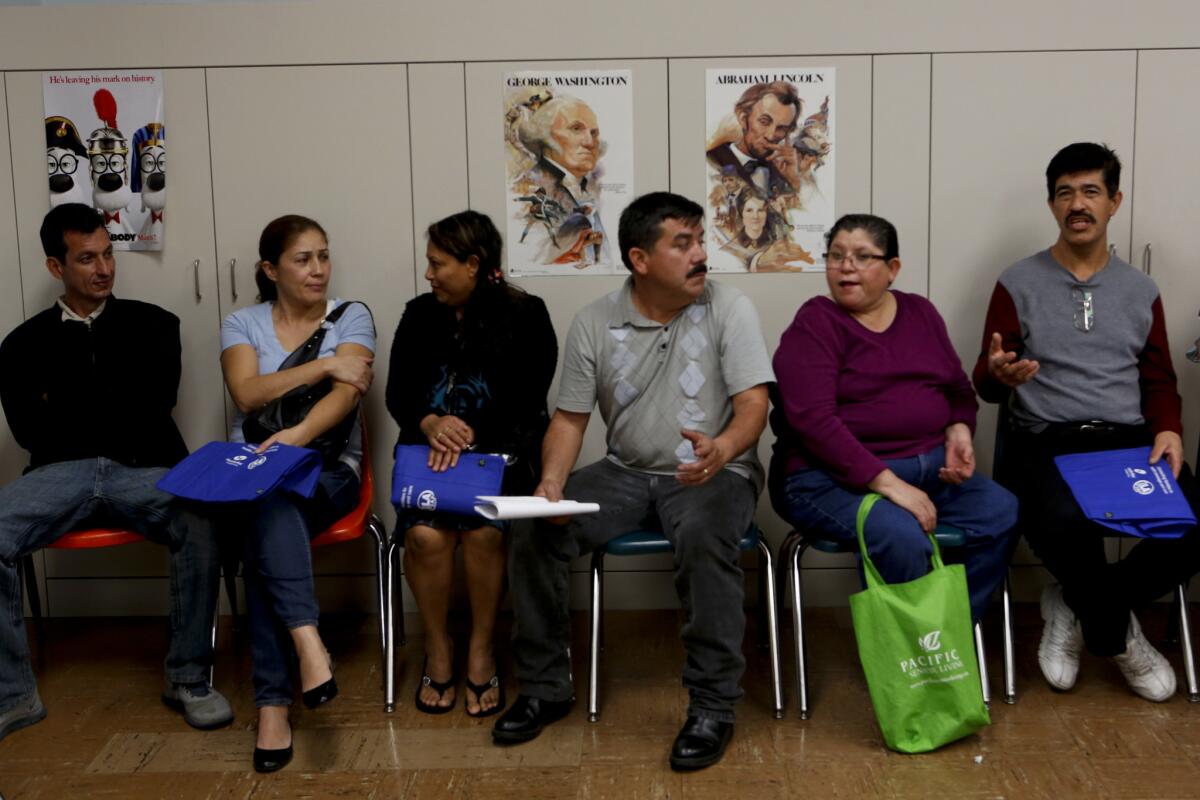Editorial: Don’t turn down a Medi-Cal gift, Gov. Brown

- Share via
The 2010 federal healthcare reform law let states expand Medicaid, the joint federal-state health insurance program for the poor, largely at federal expense. California is one of 27 states that have taken up Washington’s offer, and well over 1 million newly eligible residents signed up for coverage when the expansion went into effect this year. The response has strained the system, however, causing the backlog of enrollment applications at county offices to surge to 900,000 at one point before falling to about 350,000 this month. Adding to the workload, previous years’ Medi-Cal enrollees are asking the same county offices for help in filling out the new, lengthy forms required to renew their benefits.
The California Endowment, a private foundation active on health issues for low-income Californians, wants to relieve some of the burden on counties. It has offered to give the state $6 million for counselors to help Medi-Cal recipients fill out the new renewal forms. The Legislature passed a bill, SB 18, to let the state accept and spend that money, which would be matched by a $6-million grant from the federal government, but Gov. Jerry Brown’s finance department has objected. Brown should sign the bill anyway.
Medi-Cal is one of the state’s costliest programs, and Brown has persuaded state lawmakers to take several steps to try to tamp down those expenses. On the plus side, the state has moved more recipients into managed care services, where they can receive more efficient and timely care at lower cost. On the minus side, it has cut its already rock-bottom payments to doctors and hospitals, prompting fewer of them to accept Medi-Cal patients and thus making it more difficult for enrollees to obtain care when they need it.
In opposing SB 18, the Department of Finance argued that counties already provide help with the forms and that Medi-Cal enrollees won’t really need the help because the federal healthcare law “made simplifications” to the renewal process. Yet the department’s own analysis belies those assertions. If the bill does not become law, the department estimated, the state will save $8.7 million because hundreds of Medi-Cal enrollees will not renew their coverage.
In other words, in the department’s view, the aid that the California Endowment offers would be costly to the state in the short run because it would help more people who are entitled to coverage actually receive it. But isn’t that what Medi-Cal is for? Besides, the long-term benefit of having low-income Californians in managed care programs is that it promotes preventive care and wellness, reducing the demand for care over time. Otherwise, they’ll do what the uninsured do: rely on emergency rooms for expensive, inefficient care. Brown should reject the finance department’s cynicism in favor of the long view, and let the California Endowment help those who are still qualified for Medi-Cal keep their coverage.
Follow the Opinion section on Twitter @latimesopinion
More to Read
A cure for the common opinion
Get thought-provoking perspectives with our weekly newsletter.
You may occasionally receive promotional content from the Los Angeles Times.









